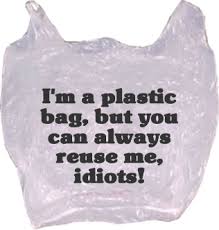Restrictions on Plastic Bags Fail to Deliver Results
< < Go Back
Despite the popularity of plastic bags, a growing number of municipalities are enacting laws aimed at reducing their use. The laws range from outright bans to taxes, says H. Sterling Burnett, a senior fellow with the National Center for Policy Analysis.
One argument for plastic bag bans is that cities will save money by reducing the costs of litter collection, solid waste disposal and recycling. And in tight fiscal times when municipal budgets are strained, the argument is compelling. However, there is simply no evidence that plastic bag restrictions reduce these costs.
In 2007, San Francisco became the first city to restrict plastic grocery bags. City Supervisor Ross Mirkarimi claimed that each plastic bag cost the city 17 cents.
However, with plastic bags amounting to less than 0.5 percent of the waste stream and a similarly minuscule amount of landfill space, Burnett calculated that the cost of clearing plastic bags from San Francisco’s streets, alleys and parks should be less than 7.9 cents per bag, not 17 cents — a considerable difference.
Even the 7.9 cents figure is suspect, because it assumes that each plastic bag is used only once. However, plastic bags are rarely used only once. People find a variety of ways to reuse them, long after unloading their groceries at home.
Still, all else being equal, the implementation of the 2007 ban should have somewhat decreased the costs of solid waste recovery, disposal and recycling.
– Yet the available data do not reveal such savings. Rather, San Francisco’s household garbage rates increased from 2005 to 2013 by more than 78.6 percent.
– Other cities have harkened to the siren song of plastic bag bans as well, all with similarly disappointing results.
In short, advocates have given a number of justifications for restricting consumers’ use of carryout plastic bags, including concerns about the environment, the visible blight of roadside litter and the costs of disposing and recycling them.
Whatever the merits of the former arguments (which are themselves suspect — plastic bags make up less than 1 percent of all litter), banning or taxing plastic bags has not reduced waste disposal costs or saved cities money.
Without evidence that the bans produce these savings, the argument behind outlawing plastic bag use on such a basis fails.
More From NCPA:




